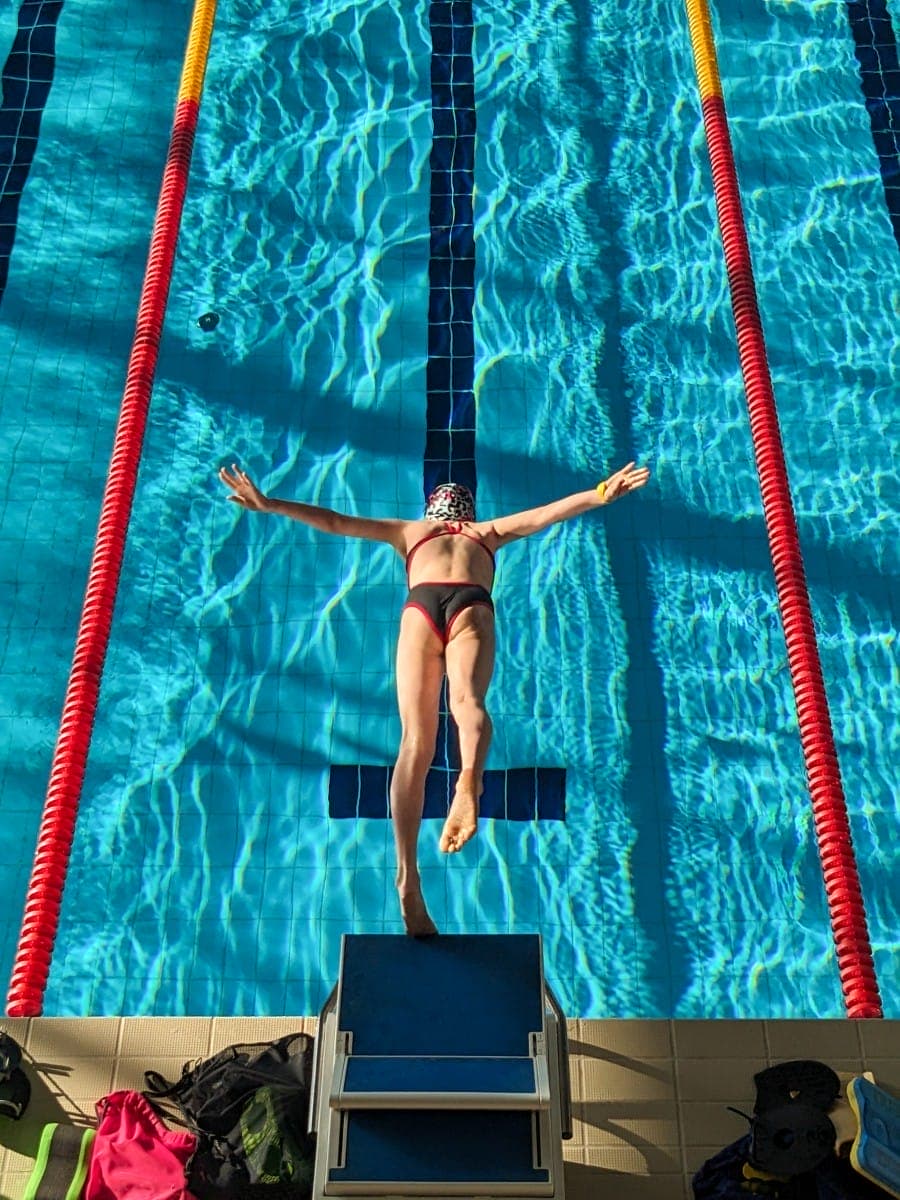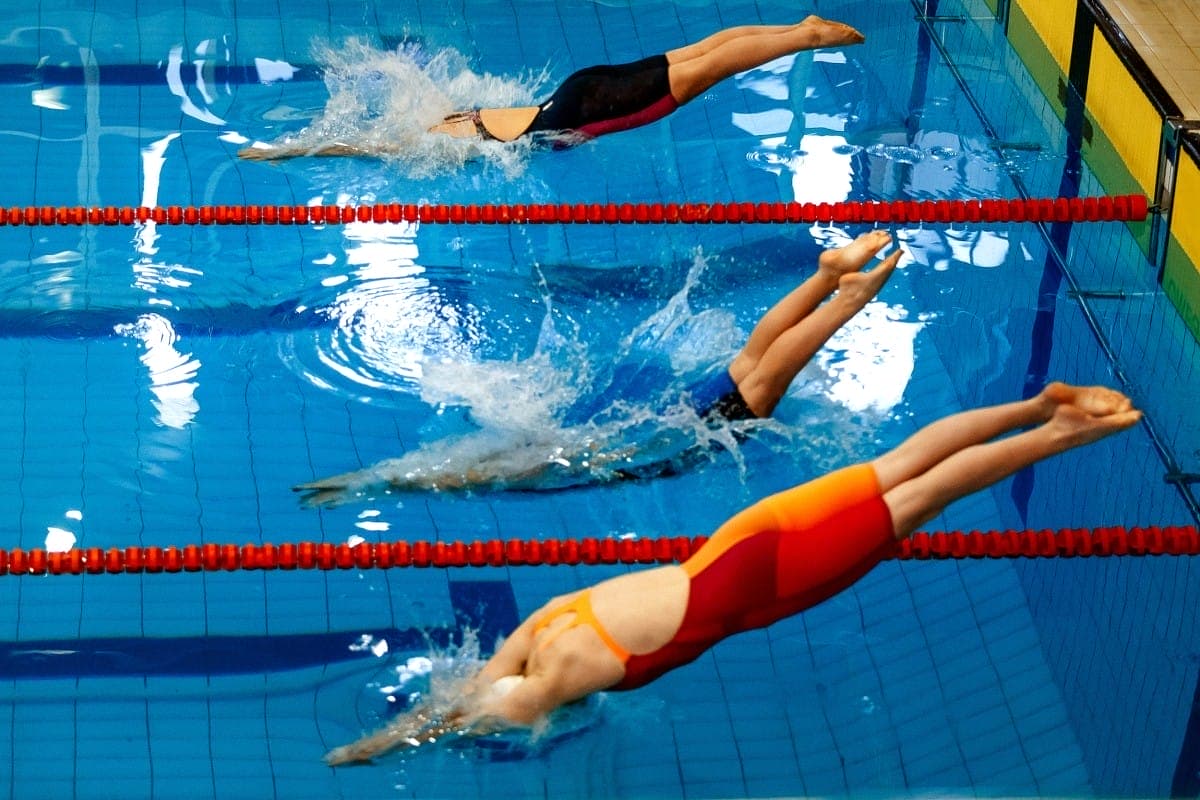If you click on links we provide, we may receive compensation.
When it comes to professional swimming, performance is paramount, but many athletes also place a high value on maintaining their appearance. While the rigorous training and physical demands of swimming are well known, the beauty routines and tips that help these athletes look their best both in and out of the pool are less often discussed. This guide explores some key beauty rules for professional swimmers, focusing on practical advice and insider tips to keep skin, hair, and nails in top condition.
Protecting Your Skin from Chlorine
Swimmers spend countless hours in chlorinated pools, which can be harsh on the skin. Chlorine strips the skin of its natural oils, leading to dryness and irritation. To combat this, professional swimmers follow a few essential steps. Before entering the pool, many apply a pre-swim lotion or barrier cream to create a protective layer. This helps to minimize chlorine absorption and maintain skin hydration.
After swimming, it’s crucial to rinse off thoroughly with fresh water as soon as possible. This removes residual chlorine and prevents it from further drying out the skin. Swimmers often use gentle, moisturizing body washes that are free from harsh chemicals. Post-shower, applying a rich moisturizer helps to restore the skin’s moisture balance. Products containing ingredients like shea butter, aloe vera, and hyaluronic acid are particularly effective.

Hair Care Essentials
Chlorine is notorious for damaging hair, especially if it’s colored or chemically treated. Professional swimmers take several measures to protect their hair from chlorine’s effects. Wearing a swim cap is a common practice, as it reduces the hair’s direct exposure to chlorinated water. While no swim cap is completely waterproof, it significantly decreases the amount of water that reaches the hair.
Before putting on the swim cap, many swimmers wet their hair with fresh water and apply a leave-in conditioner or oil. This helps to fill the hair’s cuticles, reducing chlorine absorption. After swimming, using a clarifying shampoo is essential to remove any chlorine that has seeped through. Following up with a deep conditioning treatment or hair mask helps to replenish moisture and repair any damage.
Nail Care Tips
Nails can also suffer from constant exposure to water and chlorine. Swimmers often experience brittle nails that break or peel easily. To maintain healthy nails, it’s important to keep them trimmed and filed to prevent snagging or breaking. Applying a strengthening base coat before swimming can add a protective layer.
Moisturizing is just as important for nails as it is for skin and hair. Regularly applying cuticle oil and hand cream keeps the nails and surrounding skin hydrated. Many swimmers also take biotin supplements to promote stronger nails from the inside out.
Makeup and Grooming for Competition
While many swimmers prefer to compete without makeup, those who do wear it choose products that can withstand water and sweat. Waterproof mascara and eyeliner are staples, as they stay put even after hours in the pool. For a touch of color, some swimmers use tinted lip balms with SPF, which also protect their lips from the sun’s harmful rays.

Grooming extends beyond makeup. Many swimmers opt for regular waxing or shaving to reduce drag in the water. Laser hair removal has become increasingly popular among elite athletes for its long-lasting results. Ensuring a smooth, hair-free surface helps swimmers move more efficiently through the water.
Sun Protection is Key
Competitive swimmers often train and compete outdoors, making sun protection a top priority. Prolonged exposure to UV rays can lead to sunburn, premature aging, and an increased risk of skin cancer. To protect their skin, swimmers use broad-spectrum sunscreens with high SPF ratings. These sunscreens are water-resistant and need to be reapplied every two hours, or immediately after swimming.
In addition to sunscreen, wearing protective clothing, such as long-sleeve swim shirts and wide-brimmed hats, helps to shield the skin from the sun. Swimmers also seek shade whenever possible, especially during peak sun hours between 10 a.m. and 4 p.m.
Hydration and Nutrition for Glowing Skin
Hydration is vital for swimmers, not only for performance but also for maintaining healthy skin. Drinking plenty of water helps to keep the skin hydrated from the inside out. In addition to water, consuming foods rich in antioxidants and vitamins supports overall skin health. Omega-3 fatty acids, found in fish and flaxseeds, help to maintain the skin’s natural barrier, while vitamin C promotes collagen production.
Swimmers often include a variety of fruits, vegetables, and lean proteins in their diet to ensure they are getting the necessary nutrients. Supplements such as vitamin E and zinc can also support skin health and repair.
Managing Breakouts and Acne
The combination of sweat, sunscreen, and pool chemicals can lead to clogged pores and breakouts. To prevent and manage acne, swimmers follow a consistent skincare routine. Cleansing the skin twice daily with a gentle, non-comedogenic cleanser helps to remove impurities without stripping the skin of its natural oils.
Using products with salicylic acid or benzoyl peroxide can help to treat and prevent acne. However, it’s important to choose formulations that are suitable for sensitive skin, as harsh treatments can lead to irritation. Regular exfoliation with mild scrubs or chemical exfoliants helps to keep the skin smooth and prevent clogged pores.
Getting Enough Sleep
Rest is crucial for athletes, and it plays a significant role in beauty and skincare. During sleep, the body undergoes repair and regeneration processes, which are essential for maintaining healthy skin. Swimmers aim to get at least seven to eight hours of sleep per night to allow their bodies to recover from intense training sessions.
Establishing a bedtime routine, such as turning off electronic devices and creating a relaxing environment, helps to improve sleep quality. Some swimmers use silk pillowcases, which are gentler on the skin and hair compared to cotton, reducing friction and preventing damage.
Stress Management for Clear Skin
High levels of stress can negatively impact skin health, leading to breakouts and other issues. Competitive swimmers often face intense pressure, both in training and competition. To manage stress, they engage in activities such as yoga, meditation, and deep breathing exercises. These practices help to calm the mind and reduce stress hormones, which can trigger skin problems.

Maintaining a positive outlook and having a support system are also important for managing stress. Swimmers often rely on their coaches, teammates, and family members for encouragement and motivation.
The Role of Regular Check-Ups
Regular visits to dermatologists and other healthcare professionals are essential for swimmers. These check-ups help to monitor skin health and address any concerns promptly. Dermatologists can provide personalized advice and treatments tailored to the unique needs of swimmers.
Skin cancer screenings are particularly important for those who spend a lot of time in the sun. Early detection of skin issues ensures prompt treatment and better outcomes.
According to a study published in the Journal of Dermatological Science, prolonged exposure to chlorine can lead to skin barrier damage, increasing the risk of dryness and irritation. This underscores the importance of protective measures and proper skincare routines for swimmers.
Beauty & Skincare for Professional Swimmers
For professional swimmers, maintaining beauty and skincare routines is as important as their rigorous training schedules. Protecting the skin, hair, and nails from chlorine and sun damage, ensuring proper hydration and nutrition, managing stress, and getting enough rest are all key components of their regimen. By following these beauty rules, swimmers can look their best while performing at the highest level. With the right care and attention, they can keep their skin glowing, their hair healthy, and their nails strong, both in and out of the pool.




